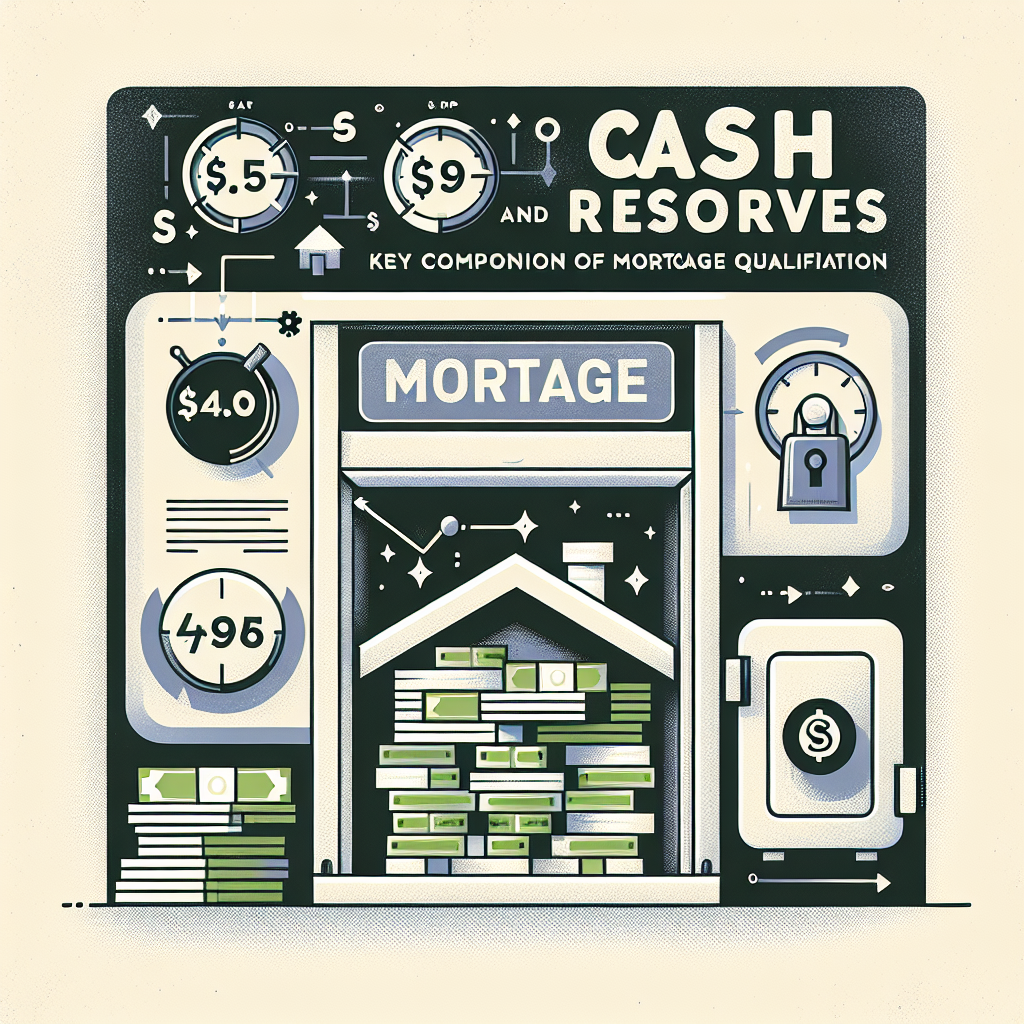When it comes to securing a mortgage, several factors play a crucial role in determining whether an applicant qualifies for a loan. Among the most significant components are credit scores and cash reserves. Many potential homeowners may overlook these elements, but understanding their importance can pave the way to homeownership.
What is a Credit Score?
A credit score is a numerical representation of an individual’s creditworthiness, typically ranging from 300 to 850. Credit scores are generated based on an individual’s credit history, which includes information about credit accounts, payment history, the amount of debt owed, the length of credit history, and the types of credit used.
Why Credit Scores Matter for Mortgages
Lenders use credit scores to gauge the risk of lending money to potential borrowers. A higher credit score indicates a lower risk, making it more likely for individuals to qualify for favorable mortgage terms. Conversely, a lower score may mean higher interest rates or even loan denial. Here’s a breakdown of how credit scores affect mortgage qualification:
- Interest Rates: Borrowers with higher credit scores generally benefit from lower interest rates, which can result in significant savings over the life of the loan.
- Loan Amounts: Lenders may be more willing to offer larger loans to those with higher scores, which can be particularly beneficial in markets where home prices are rising.
- Down Payment Requirements: Some programs may have flexible down payment requirements for individuals with excellent credit, thus reducing the upfront costs of purchasing a home.
Improving Your Credit Score
Potential homebuyers can take steps to improve their credit scores, including:
- Paying bills on time
- Reducing existing debt
- Avoiding new credit inquiries
- Checking credit reports for inaccuracies and disputing any errors
What are Cash Reserves?
Cash reserves refer to the liquid assets that a borrower has access to after making a down payment on a property. These funds can include savings accounts, checking accounts, money market accounts, and even certain investments. Cash reserves serve as a financial buffer in case of unexpected expenses or changes in income.
Why Cash Reserves Matter for Mortgages
Lenders often want to see proof of cash reserves to ensure that borrowers can handle any unforeseen circumstances after buying a home. Cash reserves can be particularly important for several reasons:
- Financial Stability: Sufficient cash reserves indicate that borrowers can continue making mortgage payments even if they experience a temporary loss of income or unexpected expenses.
- Loan Approval: Some lenders may require a certain number of months’ worth of mortgage payments in reserves for loan approval, especially for borrowers applying for high-risk loans or those with lower credit scores.
- Negotiating Power: Showing that you have cash reserves may also give you more leverage when negotiating the terms of your mortgage or the home purchase price.
Building Cash Reserves
Individuals looking to build cash reserves for a mortgage can consider strategies like:
- Setting a dedicated savings goal
- Automating transfers to a savings account
- Cutting unnecessary expenses
- Building a budget to track spending
Conclusion
When approaching the mortgage application process, understanding the importance of credit scores and cash reserves is vital. Both factors contribute significantly to a borrower’s overall financial health and ability to secure favorable loan terms. By taking the time to improve credit scores and build cash reserves, prospective homeowners can not only increase their chances of mortgage qualification but also set themselves up for long-term financial success in their new home. As you prepare to make one of the biggest investments of your life, ensure these key components are in strong shape to pave your way to successful homeownership.
